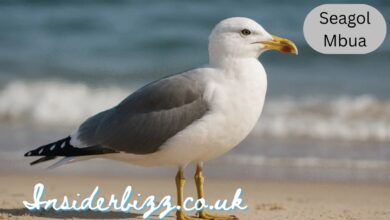
Lanzarote Atlantic Ocean: Nature, Culture, and the Power of the Sea
What Is Lanzarote Atlantic Ocean Known For?
Lanzarote Atlantic Ocean refers to the unique relationship between the Canary Island of Lanzarote and the vast Atlantic Ocean that surrounds it. As one of the easternmost islands in the Canarian archipelago, Lanzarote is entirely shaped by the power, presence, and influence of the Atlantic. The phrase Lanzarote Atlantic Ocean embodies the island’s geographical identity, its culture, its marine biodiversity, and the economic and ecological importance of the sea.
Geographic Context: Lanzarote and the Atlantic

Located just 125 km off the northwest coast of Africa, Lanzarote sits in the heart of the Atlantic Ocean. The island’s volcanic terrain, sculpted over millions of years, meets the powerful Atlantic waves along a rugged and breathtaking coastline. The Lanzarote Atlantic Ocean connection defines everything from its climate and ecosystem to its traditions and economy.
The Volcanic Coastline and Atlantic Erosion
Lanzarote is a volcanic island, with its terrain forged by eruptions over centuries. The Lanzarote Atlantic Ocean has played a vital role in shaping its coastline. Dramatic cliffs, natural lava pools, sea caves, and black sand beaches all result from the ocean’s relentless erosion and interaction with cooled volcanic rock. From Los Hervideros to the Famara cliffs, every shoreline tells a geological story intertwined with the Atlantic’s force.
Marine Life in the Lanzarote Atlantic Ocean
The Lanzarote Atlantic Ocean is home to a spectacular variety of marine life. Thanks to the convergence of cold and warm ocean currents, the waters are rich in biodiversity. Visitors and marine biologists alike are drawn to these waters to witness dolphins, sea turtles, barracudas, octopuses, and even whales. The Chinijo Archipelago Marine Reserve, one of Europe’s largest protected marine areas, exemplifies the island’s commitment to preserving this Atlantic treasure.
Water Sports and Ocean Adventures
One of the most exciting aspects of the Lanzarote Atlantic Ocean is its potential for adventure. Surfers, divers, sailors, and kiteboarders from around the world flock to Lanzarote to experience the Atlantic in all its glory. Popular surf spots like Famara Beach and La Santa offer world-class waves. Meanwhile, scuba divers explore shipwrecks, volcanic reefs, and colorful marine ecosystems beneath the waves.
The Climate Influence of the Atlantic Ocean
The Lanzarote Atlantic Ocean is responsible for the island’s unique climate—mild, dry, and spring-like year-round. The cold Canary Current moderates temperatures and creates pleasant trade winds that cool the island during the hot summer months. Without the Atlantic’s influence, Lanzarote would have a much hotter and drier climate, more like nearby Morocco.
Fishing and Maritime Heritage
The Lanzarote Atlantic Ocean has sustained the island’s communities for centuries through fishing. Small fishing villages like Arrieta, La Santa, and Playa Blanca still celebrate a way of life centered around the ocean. Traditional fishing boats, local seafood cuisine, and centuries-old maritime customs continue to thrive in Lanzarote, deeply connected to the Atlantic’s rhythms.
Lanzarote’s Ports and Ocean Trade
As an island, Lanzarote has always relied on the Atlantic for transportation and trade. The island’s main port, Arrecife, serves as a crucial hub for both cargo and tourism. The Lanzarote Atlantic Ocean connection allows for direct maritime links to mainland Spain, Africa, and other Canary Islands. This connectivity has helped develop the local economy, making Lanzarote a key point in Atlantic commerce and travel.
Atlantic Ocean and Sustainable Tourism
In recent years, Lanzarote has embraced sustainable tourism, with the Lanzarote Atlantic Ocean as a focal point. Eco-conscious diving, responsible whale-watching tours, and marine conservation education are all part of the island’s tourism strategy. Organizations work to protect marine habitats and educate visitors about the delicate balance of life in the Atlantic.
Lanzarote Atlantic Ocean and Local Cuisine
The Atlantic doesn’t just influence the landscape—it flavors the cuisine. The Lanzarote Atlantic Ocean brings in fresh seafood like octopus, moray eel, sardines, and limpets. These local ingredients are essential to dishes such as “sancocho canario” (salted fish with sweet potatoes) and grilled squid served with the famous “mojo” sauces. The ocean’s bounty is a daily presence in Lanzarotean kitchens.
Artistic Interpretations of the Ocean
César Manrique, Lanzarote’s most famous artist and architect, often drew inspiration from the Lanzarote Atlantic Ocean. His works, such as the Mirador del Río and Jameos del Agua, emphasize harmony between nature, art, and the Atlantic backdrop. The ocean’s energy and vastness are key themes in Lanzarote’s creative and cultural expression.
Surf Culture and Coastal Life
The surf culture along Lanzarote’s Atlantic coast is vibrant and authentic. The Lanzarote Atlantic Ocean provides powerful swells that shape daily life for local and visiting surfers. In places like Famara, surfing is more than a sport—it’s a lifestyle. The coast supports surf schools, beach cafés, and a thriving sense of community connected through the sea.
Island Sustainability and Ocean Responsibility
As part of the UNESCO Biosphere Reserve, Lanzarote takes its role in protecting the Lanzarote Atlantic Ocean seriously. Measures to limit overfishing, reduce ocean pollution, and maintain clean beaches are ongoing. Citizens and policymakers understand that the island’s future is inseparable from the health of the Atlantic that surrounds it.
Ocean-Inspired Festivals and Celebrations
Throughout the year, Lanzarote celebrates the Atlantic through festivals. Events like the Fiesta del Carmen honor the patron saint of sailors and include boat parades, fireworks, and ocean blessings. These events reflect the deep cultural and spiritual ties between the islanders and the Lanzarote Atlantic Ocean.
Climate Change and Ocean Conservation
Like all Atlantic islands, Lanzarote faces challenges from rising sea levels and climate change. The Lanzarote Atlantic Ocean is being affected by temperature shifts, coral stress, and changing migration patterns in marine species. Island authorities and NGOs are working on adaptive strategies to protect the coastline and marine life.
Ocean Education and Youth Programs
Schools in Lanzarote are increasingly incorporating ocean science into their curriculum. Children learn about the Lanzarote Atlantic Ocean through beach clean-ups, marine biology classes, and conservation projects. The goal is to raise a generation that understands and protects their most important natural resource.
Diving into the Atlantic: A Submarine World

Diving into the Lanzarote Atlantic Ocean reveals a stunning underwater world. Lava formations, caves, schools of fish, and even underwater sculptures make diving here unforgettable. The Museo Atlántico, an underwater art museum created by Jason deCaires Taylor, blends art with ocean conservation and symbolizes Lanzarote’s forward-thinking approach to its Atlantic identity.
The Spiritual Connection to the Sea
Many locals describe their connection to the Lanzarote Atlantic Ocean as deeply spiritual. The ocean is viewed not only as a provider but also as a symbol of power, mystery, and eternity. It’s no surprise that islanders often express a deep emotional bond with the sea that has supported and shaped their lives.
Conclusion: Why Lanzarote Atlantic Ocean Is So Special
The Lanzarote Atlantic Ocean is not just a geographical feature—it’s the soul of the island. It has shaped Lanzarote’s land, people, economy, and culture. From surfers and sailors to artists and fishermen, the Atlantic continues to inspire, challenge, and nurture all life on this extraordinary island. To truly understand Lanzarote, one must understand its inseparable connection to the vast Atlantic Ocean that embraces it.
Also Read: Cat S: A Complete Guide to the Rugged Smartphone Series



